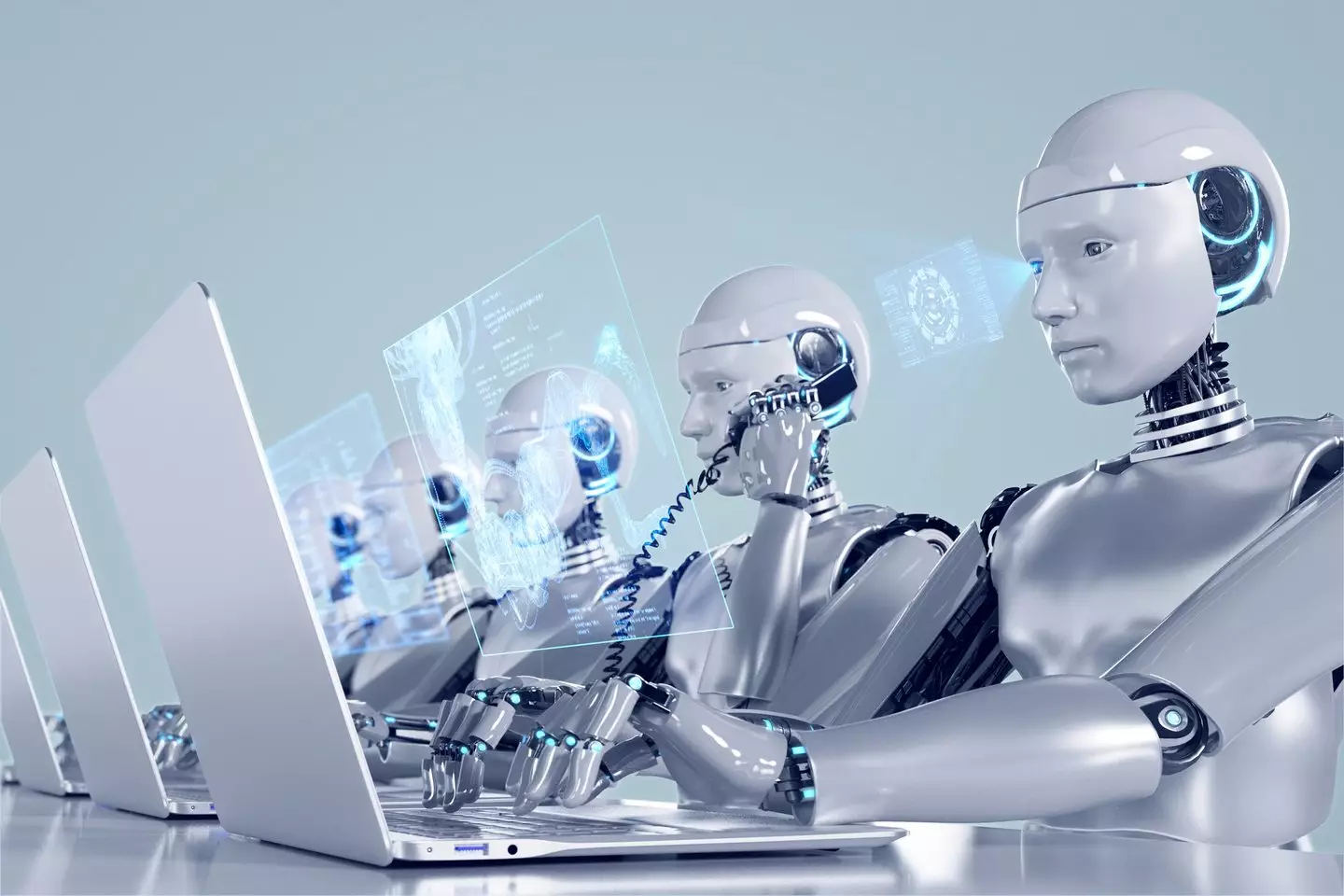
Artificial intelligence might feel inescapable, but one expert on the subject has shared some key tips as to how you can stop the tech from taking over your job.
Like it or not, the age of AI is well and truly upon us. It's on social media, it's in cars, and it's already in a lot of workplaces, prompting many experts to issue warnings about how the need for humans could become obsolete in some professions.
Bill Gates is among those who have shared their theories, claiming there will only be three jobs that survive the rise of AI.
Those jobs include coders, energy experts and biologists - but as the tech only becomes more advanced, could they be at risk, too?
Advert
The bottom line is, it can't hurt to know how to help secure your job, and career expert Rob Phelps, from AI Jobs, has shared some tips to help put up a fight if AI ever comes knocking.

Familiarize yourself with AI
Beating AI doesn't mean running from it; instead, Phelps recommends getting to know the tech, ideally before your employer does, and curating your skills to incorporate it.
The expert explained: "If you’re waiting until your employer makes the use of AI mandatory, you’re already behind.
"You don’t need to become a coding expert overnight, but becoming AI literate - taking the time to learn how AI tools can work in your field - means you can start to integrate them into your workflow."
Familiarizing yourself with AI not only helps you keep up with the tech but also allows you to help other members of the team learn how to utilize it, solidifying your position as a valuable member of the business.
Phelps added: "Learn how to use AI tools in platforms you already use to speed up the more repetitive and tedious tasks, allowing you to focus on more creativity and deeper thinking.
"Experimenting with these tools means you’re ready when you must use them, and it will show that you can move forward, rather than being left behind – and eventually, replaced."

Highlight skills that 'can't be automated'
When it comes to proving you're an asset against AI, Phelps noted that being human is 'your strongest defence'.
"AI is fast and efficient, but it doesn't know how to motivate a team, read the room in a meeting, or consider ethical considerations of long-term plans," he explained.
'Essential' skills that AI is yet to master include emotional intelligence and negotiation, Phelps said, though he stressed: "These 'soft skills' can often be underappreciated, so it's crucial to make sure that your skills are visible to management, so they know how important your role is.
"Become known as someone who isn’t just a hard and efficient worker, but as someone who is absolutely indispensable."
Be a problem solver
Sure, AI can complete tasks you set for it, but rather than simply doing what you're told, set about solving problems you see coming your way.
Phelps said: "Rather than just completing tasks, think about things like how processes could be streamlined or if there's a smarter way to do things."
This ability to think one step ahead and solve problems helps ensure that you can improve processes around the workplace, and in turn, become much harder to replace.

Sharpen your critical thinking skills
AI can answer pretty much anything, so Phelps recommended learning to 'ask better questions'.
"Being able to ask the right questions and think beyond the surface of the answer - challenging the response and interpreting a meaning - is what sets you apart from AI," he explained.
The expert pointed out that critical thinking, perspective, and good judgement are qualities that AI simply can't replace, so developing these skills is one of the best ways to future-proof your role.
"Practice thinking clearly, laterally, and logically, to dig deeper, connect dots that others have missed, and ask and answer questions that AI can't," Phelps added.
The rise of AI is daunting to think about, but along with all of these tips, Phelps stressed one key thing: don't send yourself into a panic spiral.
Instead, think logically about what elements of your job could be done by AI, and what value you bring to the role that isn’t just about efficiency and speed.
"The sooner you work out where the risks are, the more proactive you can be for the future," Phelps said.
Topics: Artificial Intelligence, Jobs, Technology